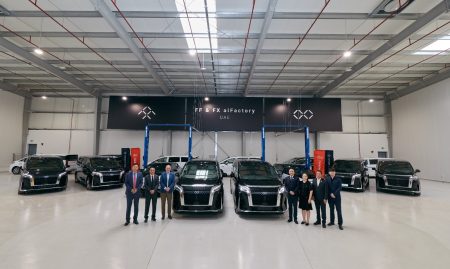Summarize this content to 2000 words in 6 paragraphs in Arabic Stay informed with free updatesSimply sign up to the Technology myFT Digest — delivered directly to your inbox.One day last month, a man with a neatly trimmed white beard stood on the pavement outside Uber’s head office in London. He clutched a clear plastic folder which contained a pile of letters, printed out emails and a carefully annotated, hand-drawn map.Ghulam Qadir was “deactivated” by Uber in 2018 after what he said was a mix-up over a passenger who paid him in cash when the app cancelled her trip. He tried to explain what happened to Uber (hence the map), but said he could not get anyone to listen. He even got his MP involved. Resorting to your MP, it seems, has become the Uber driver version of pressing the zero button repeatedly on a customer service call when you just want to speak to a human. Qadir thought that was crazy. “Parliament should be for world issues, but not my issues,” he said.He was at Uber’s office to hand in a 10,000-strong petition from drivers and their supporters, facilitated by worker rights platform Organise, to protest against what they called “automated firings” and “unfair deactivations”. Uber, for its part, told me its policies had improved a lot over the past 12 to 18 months, and that all drivers could now ask to have their case reviewed by a panel of experts. “We continually work to help make sure our approach is transparent and fair,” a spokesman said. But the petition is one sign of an under-appreciated tension in the UK government’s approach to the future. On the one hand, the prime minister has promised to clear away red tape in order to pump artificial intelligence “into the veins” of the British economy, convinced it will boost productivity, and thus growth. On the other hand, the government has also promised to make working life more fair and less insecure for low-paid workers.These goals aren’t necessarily mutually exclusive, of course. It is in workers’ interests to become more productive, assuming they secure a share of those productivity gains. And plenty of staff are already choosing to use generative AI tools (sometimes, even, without their employers knowing about it) because they can see the value in shortcuts on certain tasks such as writing emails. But one increasingly common use of AI and other algorithmic tools is to make high-stakes decisions about workers, from recruitment to performance management. A survey by the OECD last year of more than 6,000 mid-level managers in France, Germany, Italy, Japan, Spain and the US found the use of algorithmic management tools, first made famous by gig companies like Uber, is now widespread. The adoption rate ranged from 90 per cent in the US to 40 per cent in Japan. Yet even the managers seemed to feel a bit uneasy about the tools. Six in 10 said the technology improved the quality of their own decision-making, but nearly two-thirds had at least one concern. The most often-cited worry was unclear accountability in the case of a wrong decision, followed by inability to follow the logic of the algorithm’s decisions and inadequate protection of workers’ physical and mental health.In the UK, these tensions come into focus in the Data (Use & Access) bill that is making its way through parliament. Unions are worried that one provision in the bill would weaken the law around the use of automated decision-making. The law would shift from a general prohibition with some exceptions, to a general presumption to permit, along with some safeguards, such as that people should be able to contest a decision about them, obtain an explanation of how it was made and get a human to intervene.For Adam Cantwell-Corn, a policy officer at the TUC, the umbrella body for unions, the problem is that these safeguards would put the burden on the individual, and would often kick in after-the-fact. “[Say that] a worker gets a decision about firing, performance management, recruitment, whatever it might be — first of all, you need to know that’s happened . . . then you have to go through various legal and bureaucratic hurdles to request information and contest it,” he said. “Even in environments where there is active and robust trade union activity, that becomes quite difficult. In highly precariatised workplaces, it becomes practically non-executable.”Current protections against automated decisions are already poorly enforced. But the principle behind the law change still matters. Silicon Valley’s pro-technology mantra of “move fast and break things” doesn’t work so well if the “things” you can break are in fact people, standing on pavements, with a pile of printed emails in their hands. Especially if you are a government that has promised to be on their [email protected]
rewrite this title in Arabic What can workers do if they’re fired by AI?
مقالات ذات صلة
مال واعمال
مواضيع رائجة
النشرة البريدية
اشترك للحصول على اخر الأخبار لحظة بلحظة الى بريدك الإلكتروني.
© 2026 جلوب تايم لاين. جميع الحقوق محفوظة.








